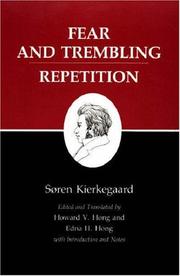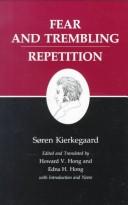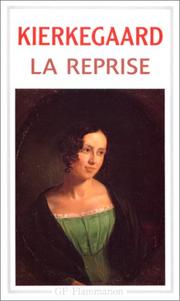| Listing 1 - 10 of 33 | << page >> |
Sort by
|
Book
Year: 1976 Publisher: Paris : PUF,
Abstract | Keywords | Export | Availability | Bookmark
 Loading...
Loading...Choose an application
- Reference Manager
- EndNote
- RefWorks (Direct export to RefWorks)
Book
Year: 1968 Publisher: Paris : Presses Universitaires de France,
Abstract | Keywords | Export | Availability | Bookmark
 Loading...
Loading...Choose an application
- Reference Manager
- EndNote
- RefWorks (Direct export to RefWorks)
Book
ISBN: 2130642012 Year: 2013 Publisher: Paris : Presses Universitaires de France,
Abstract | Keywords | Export | Availability | Bookmark
 Loading...
Loading...Choose an application
- Reference Manager
- EndNote
- RefWorks (Direct export to RefWorks)
Un concept de différence implique une différence qui n'est pas seulement entre deux choses, et qui n'est pas non plus une simple différence conceptuelle. Faut-il aller jusqu'à une différence infinie (théologie) ou se tourner vers une raison du sensible (physique) ? À quelles conditions constituer un pur concept de la différence ? Un concept de la répétition implique une répétition qui n'est pas seulement celle d'une même chose ou d'un même élément. Les choses ou les éléments supposent une répétition plus profonde, rythmique. L'art n'est-il pas à la recherche de cette répétition paradoxale, mais aussi la pensée (Kierkegaard, Nietzsche, Péguy) ? Quelle chance y a-t-il pour que les deux concepts, de différence pure et de répétition profonde, se rejoignent et s'identifient ?
Book
ISBN: 3110825821 Year: 2000 Publisher: Berlin ; New York : Walter de Gruyter,
Abstract | Keywords | Export | Availability | Bookmark
 Loading...
Loading...Choose an application
- Reference Manager
- EndNote
- RefWorks (Direct export to RefWorks)
In der Geschichte der Kierkegaard-Rezeption haben die pseudonymen Werke stets im Mittelpunkt der Forschung gestanden. Der vorliegende Band des Yearbook widmet sich nun auch der vernachlässigten Seite des Kierkegaardschen Werkes. In seinem Zentrum stehen die erbaulichen Reden von 1843-44 sowie die Drei Reden bei gedachten Gelegenheiten von 1845, die unter literaturwissenschaftlicher, philosophischer, theologischer und rezeptionsgeschichtlicher Perspektive betrachtet werden. In the history of Kierkegaard reception scholars have predominantly focused on the pseudonymous works. Thus, while there are long traditions of research on well known pseudonymous works, such as Either/Or and The Sickness unto Death, scholarship on the edifying discourses is still at the pioneering stage. In an effort to bring this other, neglected half of Kierkegaard's authorship into focus, this volume of the Yearbook is dedicated specifically to the edifying discourses from 1843 44 and to Three Discourses on Imagined Occasions, from 1845. It features articles from leading international scholars on various aspects of these discourses, which are explored from literary, philosophical and theological perspectives. A series of articles has also been included on the history of reception of these edifying discourses in the various countries and language groups. The Yearbook also includes individual sections containing papers from recent international seminars on Kierkegaard's thought. One section provides a glimpse into the most recent work from the rich tradition of French Kierkegaard research. Another section includes leading papers from recent Hungarian Kierkegaard scholarship. These contributions serve to make this number of the Yearbook the most international to date and are proof of the growing interest in international Kierkegaard research.

ISBN: 0691020264 9780691020266 069107237X 9780691072371 Year: 1983 Volume: 6 Publisher: Princeton (N.J.) : Princeton university press,
Abstract | Keywords | Export | Availability | Bookmark
 Loading...
Loading...Choose an application
- Reference Manager
- EndNote
- RefWorks (Direct export to RefWorks)
Christianity. --- Repetition (Philosophy) --- Sin. --- Christelijke ethiek. --- Gehoorzaamheid. --- Repetition (Philosophy).
Book
ISBN: 3110805049 Year: 2012 Publisher: Berlin ; Boston : De Gruyter,
Abstract | Keywords | Export | Availability | Bookmark
 Loading...
Loading...Choose an application
- Reference Manager
- EndNote
- RefWorks (Direct export to RefWorks)
Repetition (Philosophy) --- Liberty. --- Kierkegaard, Søren,
Book
ISBN: 9780748669677 0748669671 9780748669684 074866968X 9780748646784 0748646787 9780748646777 0748646779 1299483828 9781299483828 Year: 2022 Publisher: Edinburgh
Abstract | Keywords | Export | Availability | Bookmark
 Loading...
Loading...Choose an application
- Reference Manager
- EndNote
- RefWorks (Direct export to RefWorks)
When students read Difference and Repetition for the first time, they face two main hurdles: the wide range of sources that Deleuze draws upon and his dense writing style. This Edinburgh Philosophical Guide helps students to negotiate these hurdles, taking them through the text step by step. It situates Deleuze within Continental philosophy more broadly and explains why he develops his philosophy in his unique way. Seasoned Deleuzians will also be interested in Somers-Hall's new, positive interpretation of Difference and Repetition .
Difference (Philosophy) --- Repetition (Philosophy) --- Philosophy --- Deleuze, Gilles,

ISBN: 0691019622 Year: 1968 Publisher: Princeton (N.J.): Princeton university press
Abstract | Keywords | Export | Availability | Bookmark
 Loading...
Loading...Choose an application
- Reference Manager
- EndNote
- RefWorks (Direct export to RefWorks)
Christianity --- Repetition (Philosophy) --- Sin --- Philosophy --- Christianity
Book
ISBN: 9782081214194 Year: 2008 Volume: 1366 Publisher: Paris Flammarion
Abstract | Keywords | Export | Availability | Bookmark
 Loading...
Loading...Choose an application
- Reference Manager
- EndNote
- RefWorks (Direct export to RefWorks)
Repetition (Philosophy) --- Répétition (Philosophie) --- Répétition (Philosophie)

ISBN: 2080705121 9782080705129 Year: 1990 Volume: 512 Publisher: Paris : Flammarion,
Abstract | Keywords | Export | Availability | Bookmark
 Loading...
Loading...Choose an application
- Reference Manager
- EndNote
- RefWorks (Direct export to RefWorks)
Repetition (Philosophy) --- Répétition (Philosophie) --- Répétition (Philosophie)
| Listing 1 - 10 of 33 | << page >> |
Sort by
|

 Search
Search Feedback
Feedback About UniCat
About UniCat  Help
Help News
News